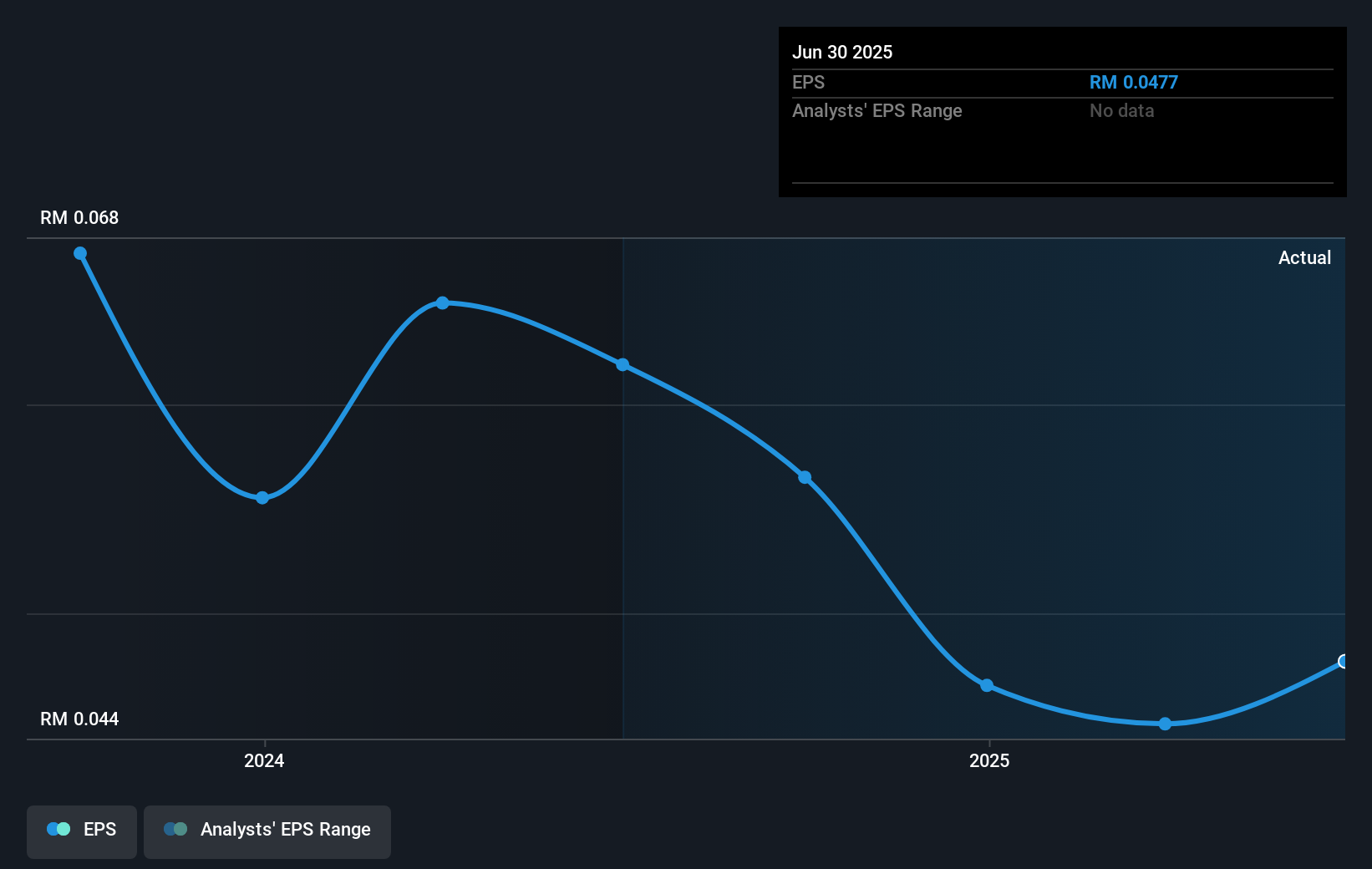- Malaysia
- /
- Oil and Gas
- /
- KLSE:KUB
KUB Malaysia Berhad (KLSE:KUB) stock performs better than its underlying earnings growth over last three years
One simple way to benefit from the stock market is to buy an index fund. But many of us dare to dream of bigger returns, and build a portfolio ourselves. For example, KUB Malaysia Berhad (KLSE:KUB) shareholders have seen the share price rise 72% over three years, well in excess of the market return (17%, not including dividends). However, more recent returns haven't been as impressive as that, with the stock returning just 31% in the last year, including dividends.
The past week has proven to be lucrative for KUB Malaysia Berhad investors, so let's see if fundamentals drove the company's three-year performance.
While the efficient markets hypothesis continues to be taught by some, it has been proven that markets are over-reactive dynamic systems, and investors are not always rational. One flawed but reasonable way to assess how sentiment around a company has changed is to compare the earnings per share (EPS) with the share price.
KUB Malaysia Berhad was able to grow its EPS at 13% per year over three years, sending the share price higher. In comparison, the 20% per year gain in the share price outpaces the EPS growth. So it's fair to assume the market has a higher opinion of the business than it did three years ago. That's not necessarily surprising considering the three-year track record of earnings growth.
You can see how EPS has changed over time in the image below (click on the chart to see the exact values).

It might be well worthwhile taking a look at our free report on KUB Malaysia Berhad's earnings, revenue and cash flow.
What About Dividends?
It is important to consider the total shareholder return, as well as the share price return, for any given stock. Whereas the share price return only reflects the change in the share price, the TSR includes the value of dividends (assuming they were reinvested) and the benefit of any discounted capital raising or spin-off. So for companies that pay a generous dividend, the TSR is often a lot higher than the share price return. We note that for KUB Malaysia Berhad the TSR over the last 3 years was 97%, which is better than the share price return mentioned above. The dividends paid by the company have thusly boosted the total shareholder return.
A Different Perspective
We're pleased to report that KUB Malaysia Berhad shareholders have received a total shareholder return of 31% over one year. Of course, that includes the dividend. That's better than the annualised return of 14% over half a decade, implying that the company is doing better recently. Someone with an optimistic perspective could view the recent improvement in TSR as indicating that the business itself is getting better with time. It's always interesting to track share price performance over the longer term. But to understand KUB Malaysia Berhad better, we need to consider many other factors. Case in point: We've spotted 3 warning signs for KUB Malaysia Berhad you should be aware of, and 1 of them is significant.
But note: KUB Malaysia Berhad may not be the best stock to buy. So take a peek at this free list of interesting companies with past earnings growth (and further growth forecast).
Please note, the market returns quoted in this article reflect the market weighted average returns of stocks that currently trade on Malaysian exchanges.
Valuation is complex, but we're here to simplify it.
Discover if KUB Malaysia Berhad might be undervalued or overvalued with our detailed analysis, featuring fair value estimates, potential risks, dividends, insider trades, and its financial condition.
Access Free AnalysisHave feedback on this article? Concerned about the content? Get in touch with us directly. Alternatively, email editorial-team (at) simplywallst.com.
This article by Simply Wall St is general in nature. We provide commentary based on historical data and analyst forecasts only using an unbiased methodology and our articles are not intended to be financial advice. It does not constitute a recommendation to buy or sell any stock, and does not take account of your objectives, or your financial situation. We aim to bring you long-term focused analysis driven by fundamental data. Note that our analysis may not factor in the latest price-sensitive company announcements or qualitative material. Simply Wall St has no position in any stocks mentioned.
About KLSE:KUB
KUB Malaysia Berhad
An investment holding company, engages in the business of importing, storing, bottling, marketing, trading, and distributing liquefied petroleum gas (LPG) for household and industrial use under the Solar Gas brand name in Malaysia.
Flawless balance sheet with low risk.
Market Insights
Community Narratives





